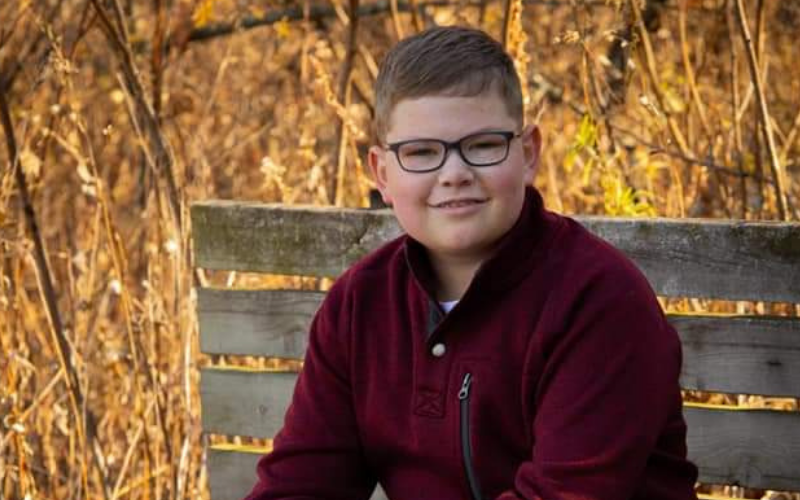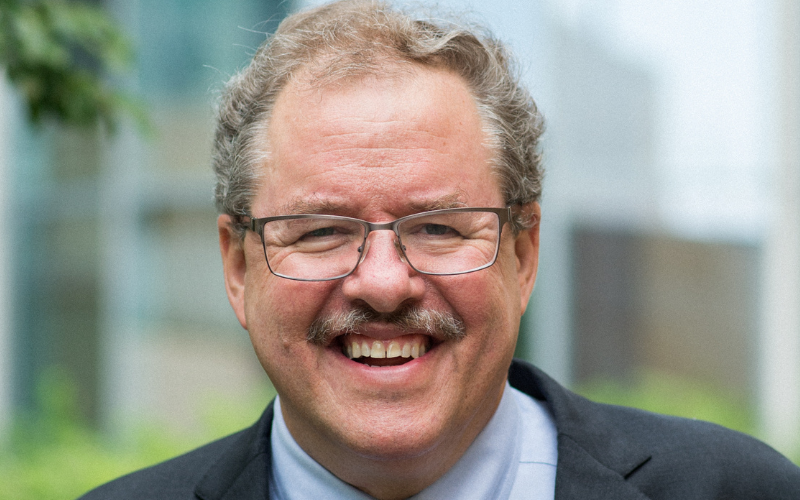By: Trish Adkins
In 2017, the FDA approved CAR T cell immunotherapy as a treatment for children with B-cell acute lymphoblastic leukemia (ALL) who have relapsed or didn’t respond to standard regimens.
CAR T cell immunotherapy makes use of a patient’s own immune cells, which are genetically modified to seek out and kill cancer cells.
But before CAR T immunotherapy was approved by the FDA, it was Stephan Grupp, MD/PhD from Children’s Hospital of Philadelphia (CHOP) who delivered the first CAR T treatment to a patient — Emily Whitehead. Emily was being treated for acute lymphoblastic leukemia (ALL). Treatments continued to fail and her parents, desperate for a cure, enrolled her in Dr. Grupp’s trial for CAR T immunotherapy. The trial worked and Emily has been cancer-free for ten years.
More children have been cured because of Dr. Grupp’s breakthrough research. Children like Austin, who was diagnosed with ALL just before his third birthday. Austin began the standard ALL treatment protocol; then six months into maintenance therapy, he relapsed. Austin had a bone marrow transplant and relapsed, again, two months later.
“As an oncology nurse, I knew about CAR T immunotherapy,” said Kim Schuetz, Austin’s mom. “I remember saying how amazing this would be for the cancer world, and had no idea how amazing it would be seeing as we needed it two years down the road.”
Austin had his first CAR T treatment in October 2013 and then a booster treatment in April 2014. Today, he is 14 years old and a typical teen boy.
Dr. Grupp shared the promise of CAR T immunotherapy and how it can offer hope to children battling leukemia and other cancers as part of the Alex’s Lemonade Stand Foundation Childhood Cancer Lecture Series. You can watch the full video here:
Dr. Grupp also answered some questions from viewers about mitigating side effects, long-term outlooks and the promise of CAR T for other types of pediatric cancers. Here are some of those questions and answers from Dr. Grupp:
Q: Can you comment on some of the CAR T clinical trials in malignant pediatric brain tumors?
Dr. Grupp: These studies are right at the beginning. There is a desperate need to make this work in brain tumors, and we all feel the urgency. We do know that CAR T cells can traffic to the central nervous system, and there is also the opportunity to inject the cells into the spinal fluid directly. Solid tumor CAR T therapy (brain or not) has been a challenge, because solid tumors have ways of keeping T cells out that leukemia doesn’t.
Q: Can patients get CAR T with active central nervous system disease? Are they at higher risk for neurotoxicity?
Dr. Grupp: Yes they can, and we have treated many successfully. I just saw a patient in follow up recently who we treated after his sixth CNS relapse over five years ago who has remained in remission ever since without subsequent transplant, radiation, or intrathecal therapy. We do require such patients to have some degree of disease control, although we have treated patients at CNS3, and with parenchymal disease or cranial nerve involvement. At lower levels of CNS involvement (i.e. CNS2), there’s no evidence of increased neurotoxicity (ICANS), and this applies to patients with a history of treated CNS disease. Patients with parenchymal disease will have symptoms related to the area that becomes transiently inflamed because of the CAR T cells. This has been reversible in our experience. It’s a real challenge to assess these patients at the peak of CAR T proliferation, because there’s no way to tell on a scan between progression and pseudo-progression, other than time.
Q: Have you been able to identify any patient factors that predispose patients to ICANS, a common acute toxicity observed with CAR T cell therapy?
Dr. Grupp: Prior seizures increase the risk of seizures during ICANS. White matter changes leftover from methotrexate leukoencephalopathy can also be associated with symptoms. But nothing that seems patient-intrinsic in our experience. We hope to know more about this when we get a better handle on the mechanisms of ICANS.
Q: What is the long-term impact on B-cells since these CAR T cells are still floating around to kill B-cells? Does this immunocompromise the child for the rest of their life?
Dr. Grupp: These particular CAR T cells can persist for years. Right now, they seem to be the only product that does. While the CAR T cells persist, the patient has no B-cells and requires replacement with IVIg or Hizentra-type products. The first patient that we ever treated is still on Hizentra nine years later. We don’t know if this is for their lifetime. Not a single patient or parent has allowed us to make an attempt to remove these CAR T cells, which might actually bring normal B-cells back. We have thought about some strategies to use. But the real answer is we don’t know and won’t until we try.
Q; How about testicular disease? Does CAR T work well?
Dr. Grupp: Honestly, we don’t know. At least in the 400 patients that we have treated at CHOP, we really haven’t had patients with testicular disease that was active at the time of the CAR T therapy. They had been definitively treated before the CAR therapy. We know the cells go other places, such as organs and the CNS, but we don’t know about the testes.
Learn more about CAR T cell immunotherapy here.
Alex’s Lemonade Stand Foundation (ALSF) presents The Virtual Childhood Cancer Lecture Series, featuring educational presentations by experts in the field. These free lectures will be of interest to scientists, especially those involved in childhood cancer research and to childhood cancer advocates. Each lecture will feature a 30-60 minute webinar which will include a Q&A period, with esteemed researchers, scientists, physicians and professors who will speak about an interesting topic.
Sign up for email announcements regarding future lectures here.
Updated May 2022.
First Published:



